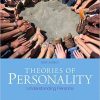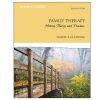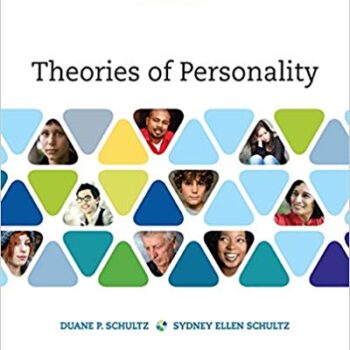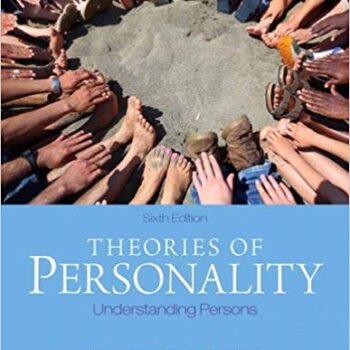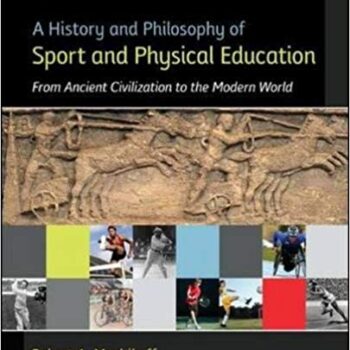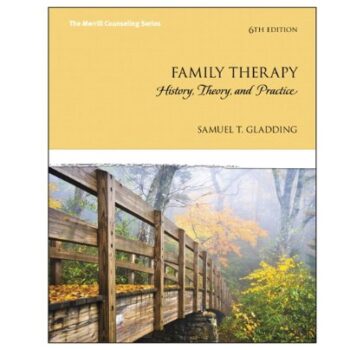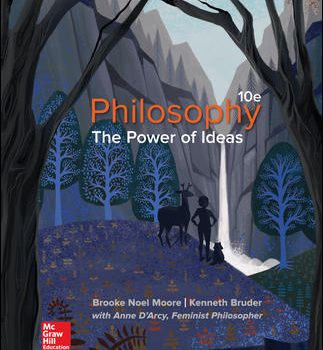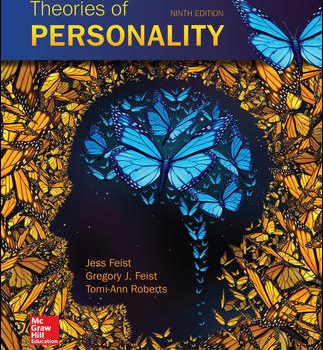Theories of Psychotherapy & Counseling Concepts and Cases 5th Edition, International Edition by Richard S Sharf – Test Bank
EXAM QUESTIONS FOR
THEORIES OF PSYCHOTHERAPY AND COUNSELING: CONCEPTS AND CASES
FIFTH EDITON, RICHARD S. SHARF
Most of the multiple-choice questions are about important concepts and their application. I have tried to vary the type of question and difficulty level. I have included a very few questions about the details of cases described in the text. The numbers next to the answer indicate that it is the correct answer and show on what page of the text it can be found. A few correct answers have no specific page reference and correct answers are indicated with an *. Instructors may wish to change the order in which the questions are presented, as the order sometimes gives a clue to the correct answer. Typically, I have listed them in the order that they occur in the text. Questions comparing one theory to another will be found throughout. However, questions from Chapter 16 include only questions that compare one theory with another. Perhaps the best instructions are: Please choose the best answer from the choices that are given. Students may view practice questions on the Cengage*Brooks/Cole website for students. There are 10 questions for each chapter. None will be repeats of these questions.
Please remember to delete the page numbers when creating a test!
CHAPTER 1
INTRODUCTION
- Theories of any type should be based on
- clear rules. (2)
- many assumptions.
- A unique plan.
- Unrelated laws or relationships.
- The term “counseling”
- does not differ consistently from “psychotherapy”. (4)
- is used to differentiate types of mental health professionals.
- Refers to helping people with educational and vocational concerns.
- Refers to helping people with normal problems.
- The term “psychotherapy”
- does not differ consistently from “counseling”. (4)
- is used to differentiate types of mental health professionals.
- Refers to helping people with educational and vocational concerns.
- refers to helping people with normal problems
- The most commonly identified approach to psychotherapy is
- behavioral.
- Cognitive.
- Integrative. (4)
- psychoanalytic/psychodynamic.
- Which of these statements is a factor common to all therapies?
- The relationship between client and therapist is important for progress. (10)
- The therapist should be integrative.
- The therapist should be trained in psychoanalysis.
- The therapist should be able to give good advice.
- An individual who is very talkative and distractible may be exhibiting behavior best described as
- anxious.
- Compulsive.
- Manic. (13)
- unpredictable.
- Mary has difficulty getting up in the morning and has little desire to do her schoolwork. This could be an indication of
- borderline personality disorder.
- Depression. (13)
- generalized anxiety disorder.
- A phobia.
- Abigail has had several brief romantic relationships, all ending in disappointment as she has felt that her lovers did not live up to her expectations. This is most likely an indication of a (an)
- borderline personality disorder. (14)
- depression.
- Generalized anxiety disorder.
- Obsessive-compulsive disorder.
- A re-occurring thought that one will die at the age of 46 is an example of
- anxiety.
- Compulsions.
- Phobias.
- Obsessions. (14)
- When headaches can not be traced to any known physiological cause they may be most likely symptoms of
- anxiety disorder.
- Conversion reaction.
- Posttraumatic stress disorder.
- Somatoform disorder. (15)
- John feels that people at work should appreciate him and realize he is the reason his company is successful, although he has little concern about his fellow employees and their problems. This may be a symptom of a(an)
- borderline personality disorder.
- Phobia.
- Narcissistic personality disorder. (15)
- somatoform disorder.
- Belinda hears the voice of William Shakespeare communicating with her about her writing. She may be suffering from
- an anxiety disorder.
- A borderline disorder.
- Neurosis.
- Schizophrenia. (16)
- Kalinda has been eating 300 calories of food per day for the past year. She is suffering from:
- Anorexia. (15)
- bulimia.
- A somatoform disorder.
- posttraumatic stress.
- Which of these statements best describes research-supported psychological treatments? Research-supported psychological treatments refer to therapies that
- are based on treatments supported by scientific investigation. (18)
- are multicultural in their approach.
- Are recommended by all theories of therapy.
- Uncover the unconscious.
- Research-supported psychological treatments
- are based on studies of the effectiveness of psychotherapy. (18)
- are multicultural in their approach.
- Are only used by cognitive and behavioral therapists.
- Are only used with individuals with phobias.
- The position that there is a fixed truth rather than perceptions of reality or truth is associated with
- constructivism.
- Modernism. (19)
- postmodernism.
- social constructivism.
- Focusing on the perceptions of the client rather than the therapist’s view of the problem is most consistent with
- constructivism. (19)
- modernism.
- Feminism.
- Colonialism.
- A researcher studies a group of depressed patients for 5 years to determine the effectiveness of therapy. Her research can be criticized for failing to
- define the group to be studied.
- Do a follow-up study.
- Have a control group. (21)
- perform a meta-analysis.
- Ethical codes should be
- irrelevant to the practice of psychotherapy theory.
- Different for different psychotherapy theorists.
- Followed in the practice of theories of psychotherapy. (23)
- identical across all mental health professions.
- Ethical codes apply
- only to psychoanalytic therapies.
- Only to behavior therapies.
- Only to humanist therapies.
- To all therapies. (23)
The Synopsys of psychotherapy and counseling as provided in the Literature titled: Theories of Psychotherapy & Counseling: Concepts and Cases 5th Edition by Richard S. Sharf is essential in understanding all the fundamental concepts in counseling and psychotherapy. This course on psychotherapy theories this book is amazing as a roadmap for learners and practitioners. It explores the twelve most common therapeutic methods in detail to exemplify their utilizations in treating such widespread problems like depression, anxiety, and personality disorders among others.
How the Test Bank Improves the Learning
The Test Bank for this book constitutes one of the components that aid in making your study sessions more productive and easier. It includes practice questions that cover the main ideas of each chapter in the book, thus strengthening important concepts and checking how much the reader understands the material. The reader is pressured to critically analyze which concepts should be modified, how and where the discretion was made applicable, and how effective various therapies had been. Through the use of the test bank, one can eliminate doubts that could have negatively affected one’s performance in an examination or when practicing counseling techniques.
Important Features of Test Bank
- In-Depth: All main theories in the book including dynamic, cognitive-behavioral, humanistic,, and systems theory are covered in the test bank. This is applicable to students as well as practitioners of Psychology and Counseling. You can learn to associate relevant theories with practical cases and scenarios.
- Case Illustrations and Applications: The test bank is developed in a manner whereby you’ll be able to engage in different applications of the concepts instead of effective rote learning. It does this by giving examples from real-life therapy situations. It does not matter whether you’re working with individuals, couples, or families, the scenarios provide an opportunity to theoretically understand how each case can be tackled.
- Test Preparation for Each Area: Every chapter of the test bank has a direct relation to the chapters of the book. This aids individuals in ascertaining their level of understanding after they discover different therapeutic approaches and their techniques. This structure enables you to monitor your development as you move through the book.
Why Should One Prefer Test Bank?
- Better Recall: If you practice using the test bank, for instance, during gender and multicultural considerations, you will be able to recall more information since this is already a prerequisite in counseling practices. It reinforces these key beliefs in a logical understanding by the test bank’s focused questions.
- Critical Thinking: The test bank prompts you to evaluate and synthesize theories and this enables you to have the capacity to substantively critique and appraise different methods of counseling practice.
- Study Advantage: The test bank aims at facilitating the storage of information. Rather than taking ages reviewing topics, you can now aim at the topics that require more time. The differences in set questions will also help you want to study even more.
Why You Should Use the Test Bank
With the help of this test bank, your potential to understand the concepts of Theories of Psychotherapy & Counseling and put them into practice would be improved. It is useful to prepare for examinations, but also to review and enlarge understanding of counseling theories that will make a candidate feel more confident toward his or her future studies or occupation. Thanks to the straightforward and lively prose of Richard S. Sharf, as well as the working examples with a variety of practical instruction, the test bank fosters better comprehension of how things work in theory in practice, so that there are no worries when faced with difficult cases in counseling.
Final words
The Test Bank for Theories of Psychotherapy & Counseling: Concepts and Cases 5th Edition by Richard S. Sharf is a very helpful supplement that enables students to understand the foundation of psychotherapies more thoroughly. It improves learning by using an application of theoretical knowledge in practical, life-like case studies, and emphasizing strong theories and techniques around the case. It doesn’t matter if you’re a student wishing to prepare for the set of examinations or a qualified specialist who needs to broaden his knowledge in effective counseling practices, this test bank definitely will help you to expand your knowledge, increase your self-esteem, and even reach professional or academic success.


